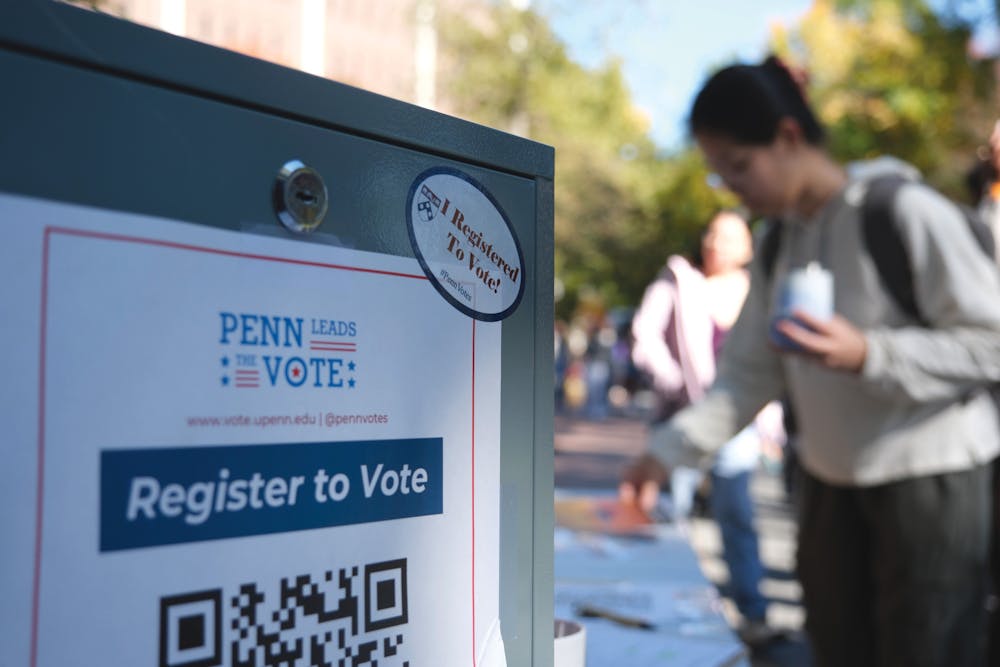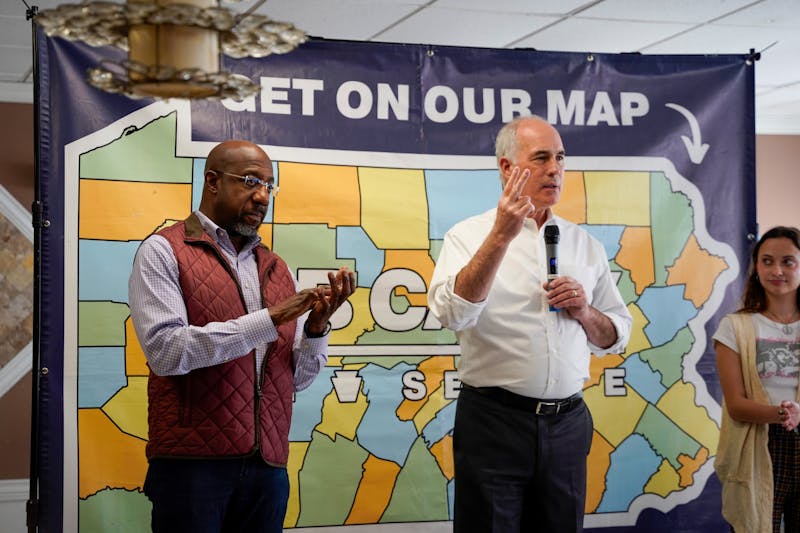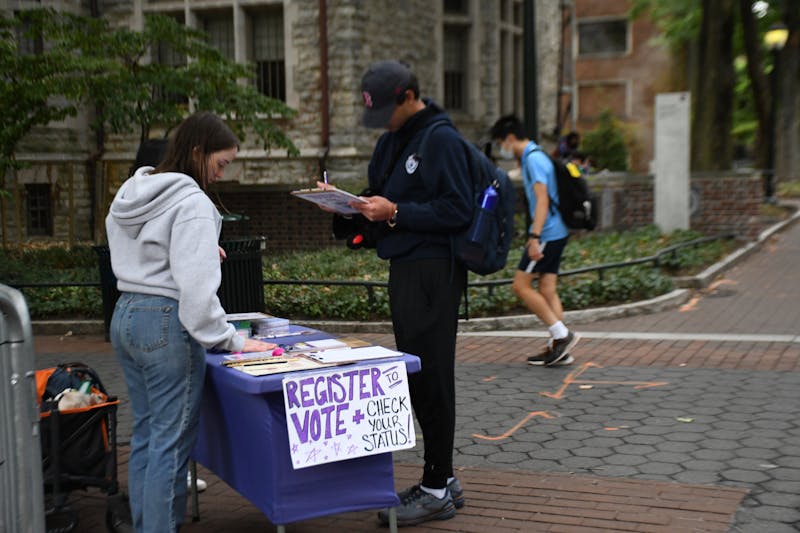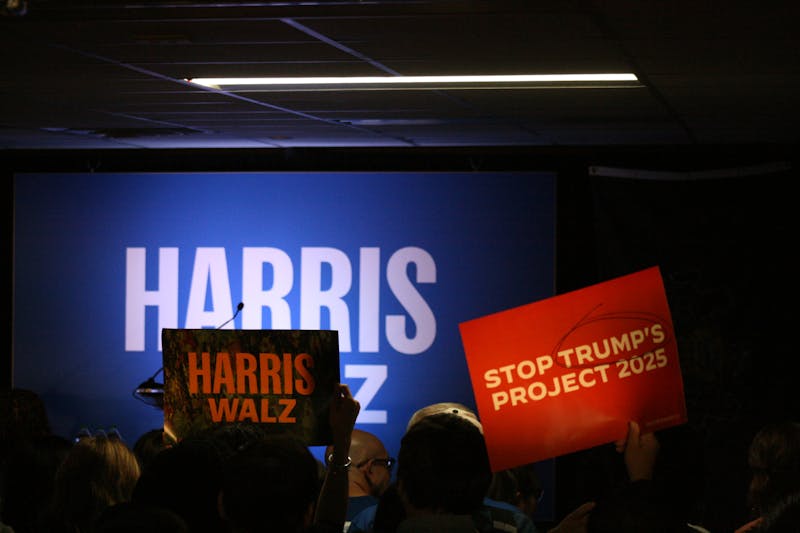
Pennsylvania has emerged as the epicenter of what has shaped up to be a contentious and unprecedented 2024 election cycle.
Both major party presidential candidates — 1968 Wharton graduate and former President Donald Trump and Vice President Kamala Harris — have crisscrossed the state several times in the months leading up to Nov. 5. Democratic and Republican candidates up and down the ballot have visited Philadelphia and Penn’s campus in the hopes of courting young voters.
As Election Day approaches, The Daily Pennsylvanian spoke with several Penn political groups about the importance of the 2024 election and what they believe is at stake.
National issues
Following President and former Penn professor Joe Biden’s withdrawal from the presidential race in late July, Harris took his place at the top of the Democratic Party ticket. Trump, the Republican nominee, is on his third campaign for president. As their campaigns have taken shape, sharp divides have emerged between the two candidates’ stances on key national issues.
College junior and Penn Government and Politics Association Vice President of Internal Affairs Sage Mehta told the DP that while GPA’s members “come from different ideological backgrounds,” many agree on the importance of the 2024 election.
“I think the consensus we’ve seen, pretty much across the board, is that people think that there’s a lot at stake,” Mehta said. “There’s a lot of issues that I think we as college students can see as very pressing, which makes the outcome of this election undeniably important.”
Penn Democrats and Penn College Republicans, the largest partisan political organizations on campus, agreed that immigration and the economy are two national issues that are central to the election.
Specifically, both groups agree that actionable steps must be taken to address immigration — which is “an issue that affects everyone,” College sophomore and Penn Dems Communications Director Steve Yang said. However, the groups disagreed on who would be best situated to make those changes.
“Trump is more interested in just saying that it’s a massive issue instead of actually solving it,” Yang said.
Conversely, a spokesperson for the College Republicans’ board believes the United States should prioritize “enforcing [its] laws” on immigration.
“We should be a welcoming country, because we are a country of immigrants,” he told the DP. “But there is a huge, huge difference that the left seems to ignore nowadays between legal immigration — and the fact that we do appreciate different cultures and different people — and illegal immigration, which we should not accept in really any circumstances.”
Yang highlighted abortion, women’s rights, and gun control as additional important issues for Democrats, while the College Republicans spokesperson highlighted a focus on crime.
However, Yang said that the Democrats’ biggest priority is preserving democracy. Election experts have expressed concern that Trump would not accept the outcome of the 2024 presidential election if Harris wins.
“If we have a system where people don’t respect the results of the election, our democracy’s in danger,” he said.
State and local impact
While the presidential race is receiving most of the spotlight, national attention is also trained on the race for one of Pennsylvania’s Senate seats. With the U.S. Senate currently sitting at a 51-49 split in favor of Democrats, the race between incumbent Sen. Bob Casey (D-Pa.) and former hedge fund chief executive officer Dave McCormick may help decide the Senate’s balance of power.
“[The race] also determines, if Kamala Harris is elected [and] if we have a Democratic Senate, [that] we can go forward and pass important legislation that needs to be passed,” Yang said. “If Donald Trump is elected, [then] we have an effective counterweight and a very strong Democratic majority — or very close to a majority — to act as a check to Trump’s desire to expand power.”
The College Republicans’ board spokesperson said that while Casey “used to be a moderate Democrat,” he has “moved a lot to the left.”
“A lot of political outsiders are trying to come into politics more recently, but sometimes it’s a really good thing, because [McCormick is] a problem solver,” he said.
The election of senators and state-level politicians can “hit closer to home,” Mehta said — something exemplified by Pennsylvania Gov. Josh Shapiro and U.S. Sen. John Fetterman’s (D-Pa.) elections in 2022.
“Those elected officials … have visited Penn, been on campus, and I think we’ve been able to see how they are sort of impacting us and representing us,” she said. “I think people should be aware about the local and the state ramifications of the election as well.”
Penn Dems and College Republicans agreed that their respective parties’ national focuses can have both a wide-reaching and localized impact.
“The economy affects everyone,” the College Republicans board spokesperson said. “Having a good economy, having low inflation, having those kinds of good numbers that we had under Trump — those numbers disproportionately help people that are [in] middle class families, because if you’re a billionaire or a millionaire, it doesn’t matter if the price of gas is $5. But if you’re a middle-class person, that really makes a difference. That’s going to affect people across Pennsylvania — and obviously, in every state in the country.”
Reaching consensus
Mehta emphasized the importance of ensuring voters’ voices are heard, regardless of their political stance.
“I think it’s important for us to vote and to use our background and to show our voice and make it heard in politics,” she told the DP. “We want to have those dialogues and make sure they’re represented at the polls, wherever [GPA’s] constituents and members are voting.”
Despite their differences, Yang and the College Republicans spokesperson believed that respect was important for political dialogue — especially for conversations about divisive topics.
“There can always be points of agreement, and [there] always can be progress made, if you just really keep it respectful and get to the bottom of why these differences exist,” the College Republicans spokesperson said.
Yang connected a shared patriotism with the importance of preserving democracy.
“We need to get back to this era where we respect each other and we just agree to disagree on our politics and policy and the ways that we want our goals to be accomplished,” he said. “I think we are all patriots; we all care for our country.”
The Daily Pennsylvanian is an independent, student-run newspaper. Please consider making a donation to support the coverage that shapes the University. Your generosity ensures a future of strong journalism at Penn.
Donate











